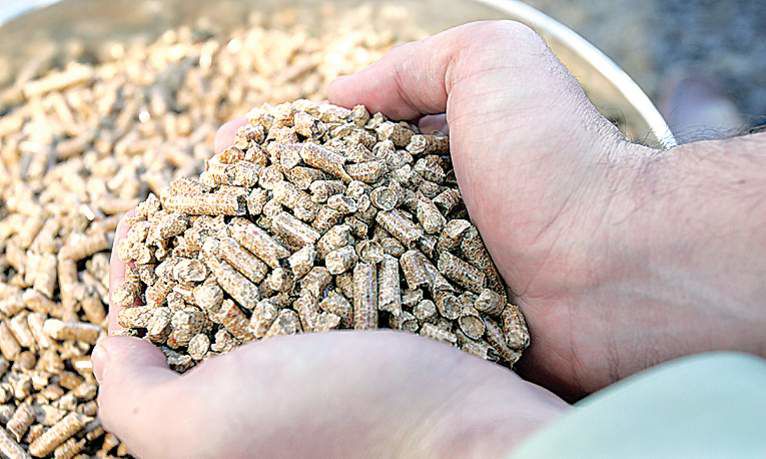Inside Sisters High’s biomass plant
Published 5:00 am Tuesday, October 18, 2011

- Step 1Wood pellets to fuel the biomass plant are bought in bulk from a supplier. Sisters School District buys from Pacific Pellet in Redmond.
SISTERS —
A new biomass plant at Sisters High School is heating water, warming classrooms and, if it works as planned, saving the Sisters School District more than $35,000 per year in energy costs.
Leland Bliss, the district’s operations director, said he hopes that estimate proves to be low.
“I think we can see more than that,” Bliss said. “You have to remember the price of diesel goes up all the time, so we could see more than that number.” Because the biomass heater replaces a diesel-fueled burner installed when the school was built in 2003, the district’s savings increase along with the cost of diesel fuel.
The project cost $335,000, which the district paid by lending itself money from reserve accounts. Bliss hopes to repay the loan over several years with the savings from the district’s annual fuel budget.
“It will be at least $35,000,” he said. “We think it could be as much as $65,000 per year.”
The district is also taking advantage of a state Business Energy Tax Credit, or BETC, through a pass-through program. BETCs typically offer tax credits to companies undertaking energy saving projects. But when government entities — which don’t pay taxes — take on a projects like the biomass plant, state rules allow them to sell their energy tax credits to individuals and companies that want to reduce their tax burdens.
The state is still looking for a private partner for the district, but Bliss said he expects to see a $148,000 check delivered within the next year. That money would go toward repaying the loan the district took from its reserves and allow for the project to be repaid within the next seven or eight years.
Sisters-based Energyneering Solutions Inc. designed and installed the system. Company president Benny Benson described it as “a fancy fireplace. It burns and then heats water.” The system consumes wood pellets bought from Pacific Pellet in Redmond and heats water to 160 degrees for use in the school’s current system.
The water passes into the building’s original diesel boilers and then into the school’s heating system. If the water stays above 160 degrees, the diesel boilers stay off. If the temperature falls below that level, which is possible during extremely cold weather and whenever the biomass section is being maintained, the diesel boilers kick on and give the system a boost.
Benson told students during a Monday afternoon assembly that the plant offers them a chance to learn and then teach what they’ve found.
“We have a live lab in the backyard right now,” Benson said, touting the science, industrial arts and economic learning opportunities of the system. Through such student work, said Benson, the public will be able to answer the question: “Did this work out?”
Sisters High School biomass boiler
Boiler type: Hot water
Boiler manufacturer: SolaGen Inc., of St. Helens
Boiler capacity: 1.27 million BTU/hr
High school square footage: 142,100
Estimated funding sources: School district reserves, $187,000; state BETC, $148,000
Estimated annual wood pellet consumption: 250 tons
Current price: $164 per ton
Average annual oil consumption of diesel boilers before biomass installation: 50,000 gallons
Current price of off-road diesel: $3.349 per gallon
Estimated annual fuel savings: $35,000 to $65,000 per year
Sources: Sisters School District, Sustainable Northwest website






